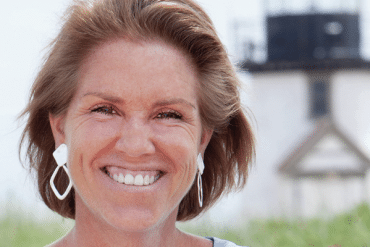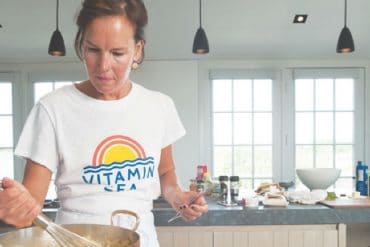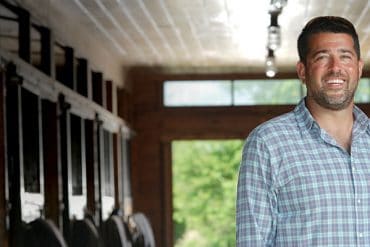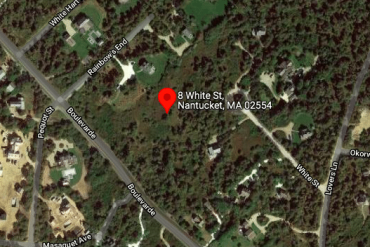How Nantucket Cottage Hospital’s Dr. Rocco Monto discovered that sixty can be the new thirty.
I am afraid of dying. It’s not the end that concerns me, it’s what happens before. You see, getting older is a relatively new thing, and we really aren’t that good at it. To be sure, modern medicine has done a great job helping us all live longer. Clean water, antibiotics and modern surgery have postponed the ultimate checkout time for most of us. The problem is that while lifespan has increased, our health span hasn’t kept pace.
 Our parents, who worked their whole lives for a retirement they thought would be filled with joy and fulfillment, wither away while their frail bodies and minds disintegrate. They linger on while heart disease, hypertension, strokes, renal disease, diabetes, dementia and depression are more common than ever. Aging has become a disease. But it doesn’t have to be like this. We can turn the tide. How do I know? Because I’ve done it.
Our parents, who worked their whole lives for a retirement they thought would be filled with joy and fulfillment, wither away while their frail bodies and minds disintegrate. They linger on while heart disease, hypertension, strokes, renal disease, diabetes, dementia and depression are more common than ever. Aging has become a disease. But it doesn’t have to be like this. We can turn the tide. How do I know? Because I’ve done it.
We all reach tipping points in life. Mine came at the hands of a surly, meaty-handed male nurse. Wait. I probably should explain. A few years ago, I thought I was doing great — I had a busy surgery practice, two freshly minted children and a beautiful wife. But there were cracks in my foundation. I was having trouble keeping up with work, my energy was low, my joints ached and my wife was getting tired of my constant complaining. I felt terrible, but I blamed everybody else for my condition. I never thought that I was the architect behind everything.
When I started having some weird neck and arm pain, I became alarmed. In true doctor fashion, I called my insurance agent to check on my disability coverage rather than see a physician. My agent lives in Philadelphia, and I hadn’t seen him in twenty years. He thought I needed more disability insurance (of course) after a routine checkup.
A few days later, a nurse from the insurance company made landfall and came by the office to do a physical exam. I unbuttoned my shirt and laid down on my crinkling table paper while this big, sweaty, male nurse did an EKG on me. He casually asked me how tall I was. Five feet, ten inches, I told him. He raised an eyebrow and asked how much I weighed. I told him what I always said when checking in to Cape Air: 185 pounds. He laughed and told me that may have been what I used to weigh. I persisted. No, I’m 185; I’m what I’ve always been. He tipped his smudged glasses down his nose and challenged me to use my scale or his. I shrewdly chose the home-field advantage scale. Two hundred ten pounds. Shocked, I think I must have jiggled a little as I slowly sat down. I guess my wife wasn’t shrinking my pants in the dryer. The nurse, who was easily twice my jumbo size, drew some blood from my fluffy veins and packed up his gear. You’ll be hearing from us, he said as he left. Great.
My insurance guy called me a couple of days later. He wanted to know what the hell had happened to me. He asked me when I got old and fat. Nice. Then he tried to make me feel better and told me that he might be able to get me some insurance but that it was going to cost me. I had already stopped listening. What happened to you, Rock? When did you get old and fat? Look, I’ve been an athlete all my life, and I’m a surgeon. Vain, self-centered and more than a little egotistical. No argument there. Old and fat, however, was not acceptable. So, I started doing everything I had always been taught in medicine about living healthy. I went on a low fat, high protein diet, started playing a little soccer and cut out the snacks. I even ate apples. Apples! Six weeks later, still feeling cruddy, but a little leaner, I got on the scale for my triumphant exoneration. The scale spun like a roulette wheel. 208. I rubbed my chubby little eyes as I double-checked the number. Two hundred eight. Really?
 My wife, who is ridiculously fit, told me I was doing everything wrong. Shocking. I started over, researching everything on diet, exercise, vitamins and supplements that I could get my hands on. I worked out every day. I ate less and slept more. I even started taking a few targeted supplements. Good things started happening fast.
The weight started coming off. After two weeks, I lost eight pounds. By one month, I had lost fifteen. By six months, I was down to 180 pounds and felt energized. I even gave my wife permission to start throwing my pants in the dryer again. I had the proof of concept I needed and put it in a book. The Fountain is the result of years spent canvassing the world and curating the finest scientific research on aging. It’s like an owner’s manual for your body.
My wife, who is ridiculously fit, told me I was doing everything wrong. Shocking. I started over, researching everything on diet, exercise, vitamins and supplements that I could get my hands on. I worked out every day. I ate less and slept more. I even started taking a few targeted supplements. Good things started happening fast.
The weight started coming off. After two weeks, I lost eight pounds. By one month, I had lost fifteen. By six months, I was down to 180 pounds and felt energized. I even gave my wife permission to start throwing my pants in the dryer again. I had the proof of concept I needed and put it in a book. The Fountain is the result of years spent canvassing the world and curating the finest scientific research on aging. It’s like an owner’s manual for your body.
Our DNA is constantly changing as it reacts and adapts to environment and chemical stress. This remarkable effervescence is reflected in the proteins we make and determines how we age. Mysterious symbiotes called mitochondria live deep within our cells. They have their own DNA, consume most of the oxygen we breathe and produce all our energy. Like tiny hydroelectric plants, they use nicotinamide adenosine dinucleotide (NAD+) molecules as rechargeable battery packs. Every time our cells divide our DNA unzips to be copied. This chaotic process leads to thousands of coding errors. Repairing these mistakes is an expensive endeavor that drains our limited NAD+ energy reservoirs. This crisis of energy and error is compounded by the need to recycle damaged cells and proteins. It is why we age.
Fasting is one popular way to ramp up metabolism. The problem is you get hungry. Really hungry. Time-restricted feeding, eating all your meals in less than twelve hours, is a more practical way to get the same metabolic benefits. Do saturated fats cause high cholesterol and high cholesterol causes heart disease? Nonsense. Heart disease is driven by obesity and inflammation. Is sugar lethal? Nope. Overeating is going to kill you, not glucose. Most extra sugar is burrowed deep within processed food, waiting for a chance to punch an express ticket straight to your bliss point.
 Salt is misunderstood. It does not cause high blood pressure. Avoid loading up your diet with salt, because high levels can still hurt you by thinning bones or inciting cancer. Think protein is awesome? Think again. Protein itself is not evil, but most Americans eat twice the optimal daily amount. High protein diets do very bad things. They can damage your kidneys and spike your levels of insulin growth factor, like catnip for cancer. What about a plant-based diet? Vegans reap tangible health benefits beyond identity and politics, but also battle iron deficiency and anemia.
There is no diet, pill, or procedure that is as powerful as exercise. It improves brain function and replenishes energy reserves. Exercise of all types alters the shape of your chromosomes and helps them behave years younger. It is also sweaty and difficult. A drier route to longevity is a strong sense of purpose. Never retire. Ever. Our minds have evolved to crave the stimulation and creativity of emotional connections.
Salt is misunderstood. It does not cause high blood pressure. Avoid loading up your diet with salt, because high levels can still hurt you by thinning bones or inciting cancer. Think protein is awesome? Think again. Protein itself is not evil, but most Americans eat twice the optimal daily amount. High protein diets do very bad things. They can damage your kidneys and spike your levels of insulin growth factor, like catnip for cancer. What about a plant-based diet? Vegans reap tangible health benefits beyond identity and politics, but also battle iron deficiency and anemia.
There is no diet, pill, or procedure that is as powerful as exercise. It improves brain function and replenishes energy reserves. Exercise of all types alters the shape of your chromosomes and helps them behave years younger. It is also sweaty and difficult. A drier route to longevity is a strong sense of purpose. Never retire. Ever. Our minds have evolved to crave the stimulation and creativity of emotional connections.
The Fountain is a story of a relationship — the most profound and complex relationship of all, the dialogue between your body and the environment. Like all affairs, it is defined by choices and sacrifice. The time has come for all of us to recalibrate our approach to health and write our own stories. Will it be easy? No, but it will be worth it.
Raymond Rocco Monto, MD, is an award-winning orthopedic surgeon & sports medicine specialist, keynote speaker and author of The Fountain: A Doctor’s Prescription to Make 60 the New 30, which is available now at Mitchell’s Book Corner and Nantucket Bookworks.







